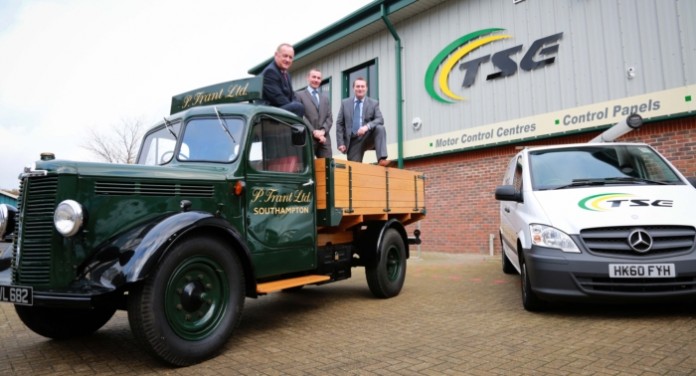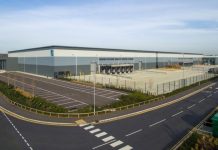
A UK specialist in the design and production of high-quality control systems has relocated to larger manufacturing facilities in order to accommodate expansion.
The new premises for Trant Systems Electrical (TSE) is three times’ larger than the previous site, scaling up to meet strong commercial demand from industry, including power, water, oil and gas.
TSE, headquartered on the western edge of Southampton, Hampshire, designs, manufactures, installs and commissions intelligent motor control centres (MCCs) and control panels.
Capabilities include the design, manufacture, installation, test, commissioning and lifecycle support of electrical systems.
An approved systems integrator, TSE’s work includes a software design service which marries up hardware with the computer systems of clients to ensure flawless operational integration of what is known as system logic.
TSE operates out of Rushington Court business park, occupying new office and production space a stone’s throw away from its previous location.
Clients include Associated British Ports, the Ministry of Defence, ExxonMobil, National Grid and a number of water companies.
An open day was held for scores of guests from British industry to officially celebrate the opening of the production facility.
Glen Fielder, TSE’s general manager, said: “We’re experiencing strong demand from industry, nationally and globally, for our high-quality control panels, MCCs and automation systems, which are all underpinned with compliance credentials.
“TSE’s one-stop shop, to coin a phrase, will help us in our aim to be the first-choice control systems company for our clients in the UK and overseas, with close collaboration reducing clients’ overall costs.
“The technology being deployed here in Southampton is quite extraordinary and awe-inspiring, including the design and implementation of cutting-edge software to dovetail with the installation of MCCs and control panels at clients’ sites.
“The open day was a huge success, with clients feeding back how impressed they were, including how we design intelligent software to suit various technology platforms so that they all speak one language in electronic terms. We call this the control system philosophy.
“Our rigorous site simulations are part of that, ironing out any teething problems so that installation can take place at the client’s location without any costly and operational delays.”
In a recent development, TSE, which employs professionally-qualified engineers, won the national framework to supply new-generation MCC panels for the Environment Agency in northern England.
The division of Southampton-based Trant Engineering, a multi-disciplinary contractor with 900 staff and founded in 1958, is also experiencing demand for its fully-certified hazardous area systems.
Glen said: “An overseas navy has contracted us to upgrade the control systems for blast-proof enclosures at a helicopter refuelling site, where aviation fuel spillage is a concern – all it takes is for a grain of organic dust to ignite, causing a devastating blaze.
“We are doing the same kind of intricate work for a skid control panel on a helicopter landing platform on a sea oil rig.”
TSE’s highly-qualified design team offer unparalleled expertise and are adept at tightly integrating all key disciplines of process, mechanical, electrical, instrumentation and systems integration.
Glen added: “Clients are also coming back to us for modifications and upgrades of their existing systems, including for temperature rise tests and installing of fans – some legacy panels don’t have cooling systems incorporated, which is an industry-standard requirement these days.”



















